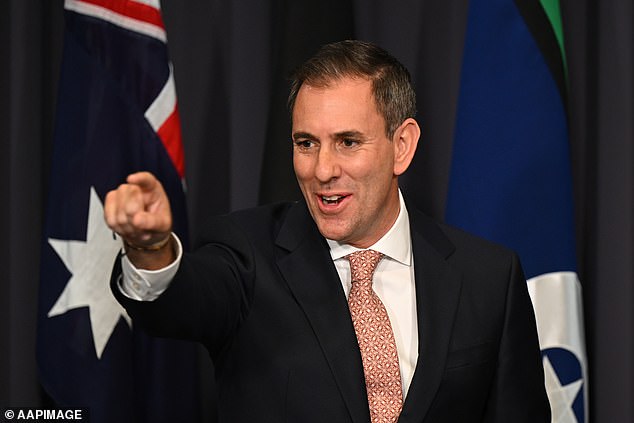How Albo & Co. Are Evading Singapore's Mammoth New Tax—and Overlooking Its Clear Flaws
- A new tax will be applied to paper profits in superannuation accounts.
- Must begin making payments once the balance hits $3 million.
- MPs with long service won't need to make payments until they retire.
The Prime Minister has exempted both himself and other recipients of substantial parliamentary pensions from the new superannuation tax that applies to everybody else.
The recently introduced tax on untapped super profits means that others must pay up as soon as their earnings hit the taxable limit. But not for Albo—he gets to postpone his payment until after he has officially retired.
This is typical of politicians who set different rules for themselves compared to ordinary people.
According to the impending new legislation, individuals with a super balance exceeding $3 million will be required to pay taxes on paper profits annually. This might necessitate selling portions of their investments to cover the tax liabilities.
The Prime Minister and other recipients of the traditional parliamentary super scheme are excluded from this rule.
They are required to make this payment only upon retiring and being able to access the funds, at which point it comes with a lower cost. inflation rate similar to the government bond rate.
The opposition has charged the Labor Party with exhibiting double standards, a claim that holds true.
Nevertheless, several Liberal Members of Parliament remain active in parliament and they too are eligible for the previous pension plan, thus benefiting similarly to Albanese.

This encompasses newly appointed Liberal leader Sussan Ley, who joined Parliament in 2001, two years prior to the abolition of the previous parliamentary pension scheme for incoming members, which was implemented by John Howard.
A representative for Treasurer Jim Chalmers attempted to deflect criticism using vague language, yet it’s clear that Chalmers has included a specific clause in the new legislation designed to benefit his superior and other political allies. This move cannot avoid scrutiny as it appears to cater to those in power.
The proposed tax will be brought before Parliament when it reconvenes at the end of July.
Of course the decision not to force holders of parliamentary pensions to pay the on-paper profits tax immediately is a sound one, because they can’t sell down that pension to cover the tax bill in the same way a standard super holder can.
MPs including Albo would be forced to sell other assets to cover the debt, which is a big ask.
However, that’s exactly why the fresh taxation measure is poor policy, and why specialists have deemed it 'faulty'.
Nevertheless, Labor continues to move forward with it regardless of the worries expressed by various parties in recent weeks.
Even Ken Henry, who previously led the Treasury, and Philip Lowe, the ex-Governor of the Reserve Bank of Australia, have voiced their worries.

Although Labor claims that this new tax will initially affect only a few taxpayers who have superannuation accounts exceeding $3 million, this situation won't last. The reason being, since the threshold doesn't get adjusted for inflation, an increasing number of Australians will eventually find themselves subject to this levy as time progresses.
AMP predicts that by the time Generation Z reaches retirement age, one-half of them may have to pay taxes if the $3 million threshold isn't adjusted. The Labor party has stated they do not plan to adjust this threshold.
The Treasury predicts it will generate $40 billion from the tax over the next ten years, with a significant portion of this amount expected to come towards the end of the period as the impact extends to many additional individuals.
Critiques of the new tax extend further than just the absence of indexing.
This description also highlights that it tends to be harder on women since they typically contribute less to their superannuation during periods when they leave the workforce to raise children. Additionally, women generally have longer life expectancies compared to men, which makes those savings even more crucial for their financial security.
When a man passes away before his female partner, she typically receives the transfer of his super into her account. If this pushes her total beyond $3 million, she'll face a new 30% tax on the amount she has inherited.
As a result, some tax experts have referred to it as a 'widow tax.'

Farming communities and individuals utilizing their superfund for property investments will face significant challenges as well, since these substantial assets cannot be divided and sold to cover taxes. Should the assessed value decline in later years, unfortunately, the tax liability remains unchanged.
As demands for reforms to the new tax continue to increase, Labor has not shown any signs of revisiting its significant shortcomings thus far.
The newly formed Senate comes into play starting from 1st July, with Labor receiving backing from the Greens—who will hold the deciding vote independently—to push through this legislative alteration.
Do not anticipate any pressure for indexing from those sources. In fact, the Greens aim to set the tax starting point at $2 million and might manage to negotiate this, despite Labor firmly standing behind the $3 million limit they campaigned with.
Read more
Post a Comment for "How Albo & Co. Are Evading Singapore's Mammoth New Tax—and Overlooking Its Clear Flaws"